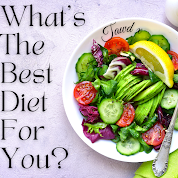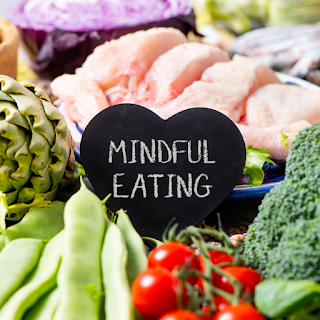Should You Try Keto? Or Vegan? Or Carnivore?
What's The Best Diet For You?
In the nutrition world, different types of nutrition plans have gained traction over the years, being dubbed good for various goals.
For example, the ketogenic diet has been popularly used for weight loss.
In contrast, the vegan way of eating has been heavily promoted due to the sometimes over-claimed health benefits that may come from excluding all products that come from animals.
There are so many popular diets out there, but in this blog, we'll be focussing on the 3 most popular ones:
- The Ketogenic Diet
- The Vegan Diet
- The Carnivore Diet
If you're new to nutrition just getting to learn more about healthy ways of eating and are curious as to which option may be the best for you, keep on reading!
What Makes A Great Nutrition-Packed Plan?
However, the truth is that excluding a particular set of nutrients or focusing heavily on one specific food group only won't really hack your way to sustainable progress...
However, that doesn't mean that these diets can't be effective and beneficial.
The MOST IMPORTANT element of an effective nutrition plan FOR YOU is its sustainability; in other words, how well you can stick to it.
When you are on a diet, you need to think in terms of "Can I stick to this WOE in the long term, or does it feel like torture by food?"
If you're eating keto, for example, but can't really tolerate what it requires, why start it in the first place?
Let's have a look at all 3 approaches to nutrition and discuss their plusses and negatives.
The Carnivore Diet
The underlying predisposition of the carnivore diet states that humans have evolved to today's extent with the use of nutrient-dense animal food sources, as we used to live in hunter-gatherer societies for a long time beforehand.
These are the sole foods that increased satiety and provided all of the essential nutrients that facilitated the complex development of the human species as we know it.
As the name points out, animal products like flesh, meat, and internal organs are at the core elements of this nutrition plan.
Echoing somewhat the ketogenic diet, due to its high protein and fat content, the carnivore WOE differs as it also allows for the consumption of quality carb sources like fresh fruits and root veg.
Pros: Highly satiating, abundant in essential nutrients
Cons: Quality meat is expensive; you can't consume grains and vegetables
The Ketogenic Diet
The term 'ketogenic' comes from the provoked metabolic state of 'ketosis,' during which the body uses fat as its primary energy source. (the liver transforms fats into ketone bodies that are released into the bloodstream and used as an energy source).
This diet has gained a tremendous amount of positive feedback from people on weight-loss regimens or individuals who try to normalise their blood sugar levels.
However, one of keto's most significant disadvantages is that it heavily reduces carbs, and thus, athletic performance may suffer.
Pros: Highly filling, with plenty of quality protein and fats
Cons: Almost completely excludes carbs, doesn't allow sweets, is not very flexible, maybe hard and pricey to stick to
The Vegan Diet
This vegan approach to nutrition entails a complete focus and devotion to plant-based and naturally derived foods.
And though there are no immediate additional benefits to that, as opposed to other diets (when calories are taken into consideration), the vegan diet may actually turn out to be way more sustainable for some individuals, especially ones who can't tolerate animal foods and proteins well.
Pros: May ease digestion and improve food intolerances while granting sufficient nutrients for healthy functioning.
Cons: It can be hard to find quality vegan foods, excludes the most nutritious foods (animal products), food volume is usually extensive, which can result in bloats and changeable bowel habits.
Which Diet Should You Choose?
- Do I enjoy the foods this diet requires?
- Can I religiously stick to this?
- Will I feel sad and hangry following this particular plan?
- Is this sustainable for me in the long term?
- Will this provide me enough energy for my daily mental and physical welfare?
Remember, don't fall for someone else's marketing tricks and hope that you will get the same results as they promise you can achieve!
Do your own research, experiment yourself and find out the nutritional approach that is most sustainable for YOU!
All Out Now!
The ultimate dirty girls guide to eating clean.
The Superfood Smoothie Kick Start!
Juicing For Health
Easy Juices To Boost Your Health After 30
The 80% Plant-Based Diet Boost For Clueless BXtches- 2022








Comments
Post a Comment